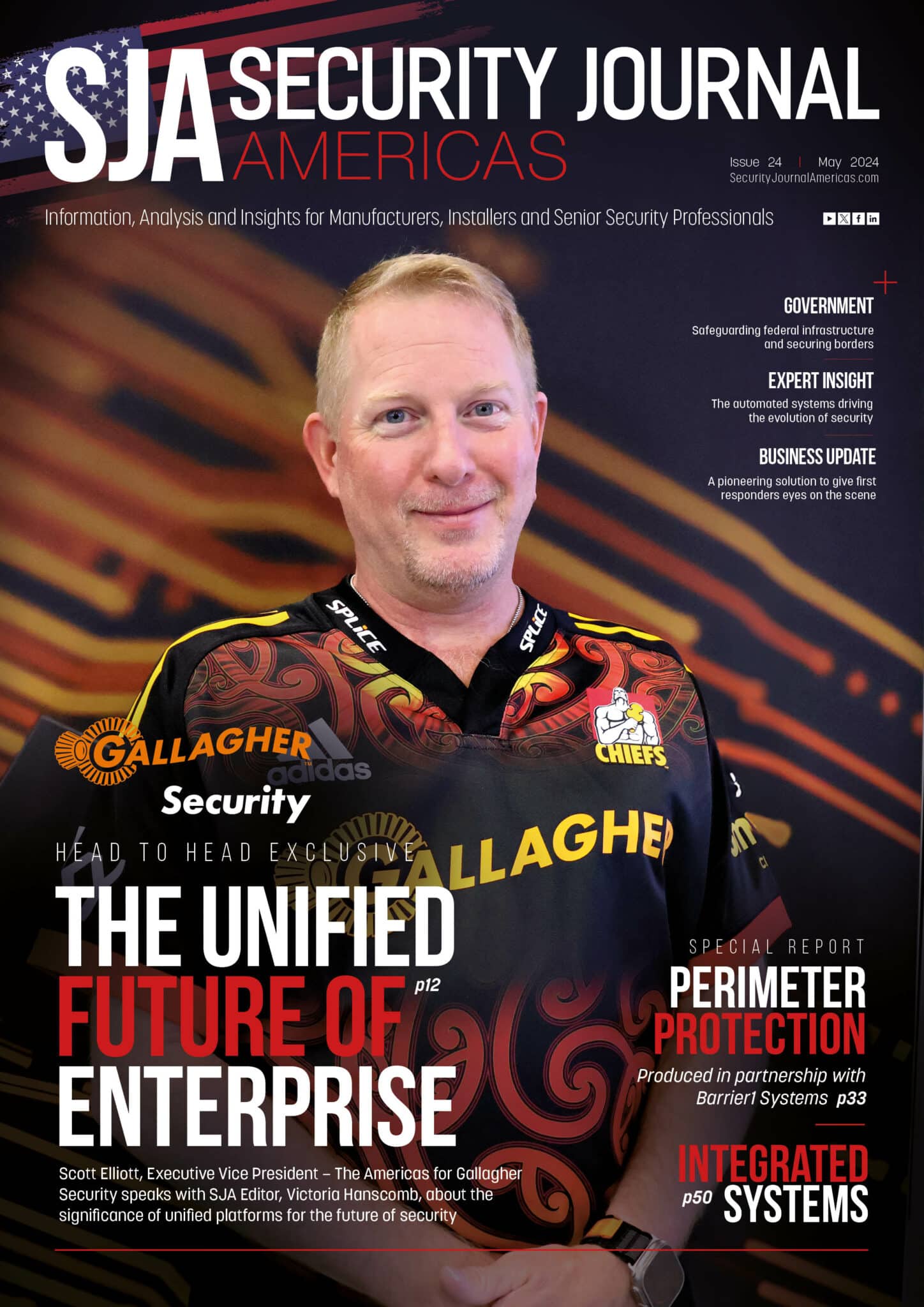Exclusive: Made in the USA


Victoria Rees
Share this content
Some of the biggest names in US security share their views on how security in America has evolved over recent years.
At a time of such great uncertainty from a geopolitical standpoint, the world is once again looking towards the USA to show leadership in a challenging situation. As with many other aspects of the political landscape, the path forged by the USA on security is often followed by the rest of the world.
That is why it has been so interesting to see how the US security industry has reacted to the COVID-19 pandemic over the last two years as well as the other challenges that have been thrown at US businesses over the same period.
Security Journal Americas sat down with a number of the leading figures within American security to hear their views on how security in the US has evolved in recent times and to find out what advice they have for any security providers looking to enter the US market.
Anything but standard
When reviewing the evolution of US security in recent years, it is impossible to ignore the impact that the pandemic has had. Private Security Manager, Matthew Porcelli highlighted its effect: “Security in the United States has evolved into anything but standard. Since the COVID-19 pandemic hit two years ago, safety and compliance has become a staple in both proprietary and contract security teams.
“Just as there is, “the Flu season,” there is now, “the COVID season.” New normalcy and compliance factors were born out of the pandemic, (i.e. social distancing, health questionnaires) and are now common in everyday life. Security must/will continue to adapt to ensure that they not only meet the compliance of their employers but also the client(s) they protect. Furthermore, as safety is now synonymous with security, the industry will continue to evolve to keep up with the fluidity of national and global compliance.”
Suzanna Alsayed, Founder of Evolutz added that the pandemic has helped the security industry to gain some deserved recognition: “Prior to COVID-19, the security industry arguably struggled to define its scope of work to a general audience and potential clientele. Today, the work and value have increased due to the acknowledgment of the need for safety and response. Hence, security is deemed as a necessity, rather than an option, giving the industry and its professionals greater opportunities to expand (and even venture into new fields and domains).”
Alsayed also points to improved flexibility and diversity within security as another major change: “The last five years have seen an unprecedented shift of attitudes and focus vis-a-vis advocating for equality, diversity and inclusivity within the industry. Additionally, the culture is slowly shifting and changing its ways to incorporate more modern approaches to conducting business. Prior to the pandemic, conducting “security” operations from home would have been impossible. The obligations and constraints imposed by the pandemic demonstrated that anything can be achieved with the right idea, an openness to flexibility and a favourable business climate.”
In the eyes of Michael Gips, Principal at Global Insights in Professional Security, the role of the security professional has undergone significant transformation: “There’s an increasing realisation that security is security, that threats cross disciplines, so why partition the security function? So many of today’s threats have a combination of cyber, physical and personnel security components, so working in silos doesn’t make sense. Organisations are edging towards convergence of these functions. The proliferation of security devices on corporate networks is requiring security departments to adopt digital transformation.
“ESRM is also gaining traction with ASIS championing that approach in its standards, educational programs and other content. The COVID pandemic has also brought the crisis management function of security to the fore, with security taking on many new roles, such as occupancy monitoring, at least temporarily. The hybrid work phenomenon has turbocharged the insider threat and spotlighted staff mental health, both of which are prime security concerns. Finally, security has become much more involved in brand protection, as disinformation, conspiracy theories and memetic warfare target both business and the government institutions that underpin the country’s democracy.”
Gaining trust
The impressive growth projection for the US security market over the coming years of course means that there are a number of extremely lucrative business opportunities for security providers. However, history has shown that it is anything but easy to crack the US market.
Scott Cutler, OEM Program Manager at BCD provided this advice: “Start with one or two areas of expertise and master those before enhancing your offering. Gaining customer trust by using tier-one products with excellent support and value-added services will go a long way for repeat and word-of-mouth business.”
Michael Gips said: “Everyone’s looking for the next disruptive technology. Can you position your product and service as something that meets a need that no one else can fill? Too often I see company spokespeople claim their offering is unique and one booth over there’s a competitor with almost the exact same product but maybe a slightly different algorithm.
“Also, it’s difficult to come in with a rip-and-replace product. End users will be extremely reluctant to cut the cord on legacy products, especially if it’s use is extensive. So your product should be able to integrate with or ride on that system. You want to make the installation as easy and painless as possible, while providing tangible, measurable value. Also consider partnering with consultants, integrators and specifiers. If they see the value in your offering, it will go a long way towards socialising it with potential end users.”
Matthew Porcelli believes that communication is key: “Stay current with the contemporary times and ensure clear and concise communication is provided to your frontline staff. Devour as much relevant information to the security market as possible and be sure to enforce this with subordinates. For young businesses starting out in the security service industry, you must collect and collaborate with as many entities relevant to the sector. As I have advised many times, It is who you know that gets you the job and what you know that keeps it.”
For Suzanna Alsayed, the importance of quality research cannot be overstated: “Above all else, research your market as much as possible and figure out your own company’s goals. If you are an international brand, you need to adapt to the US culture, terminology and etiquette. That requires adjusting your perspective and initial beliefs concerning how things are done in North America. It would be a good idea to search for a partner or a collaborative opportunity already within the US to help you ease into the realities of the process.”
Looking ahead, there will undoubtedly be a range of new and existing security threats for US businesses to overcome, presenting opportunities for top-class security providers to once again showcase their expertise.
This article was originally published in the March 2022 edition of International Security Journal. Pick up your FREE digital edition here.


